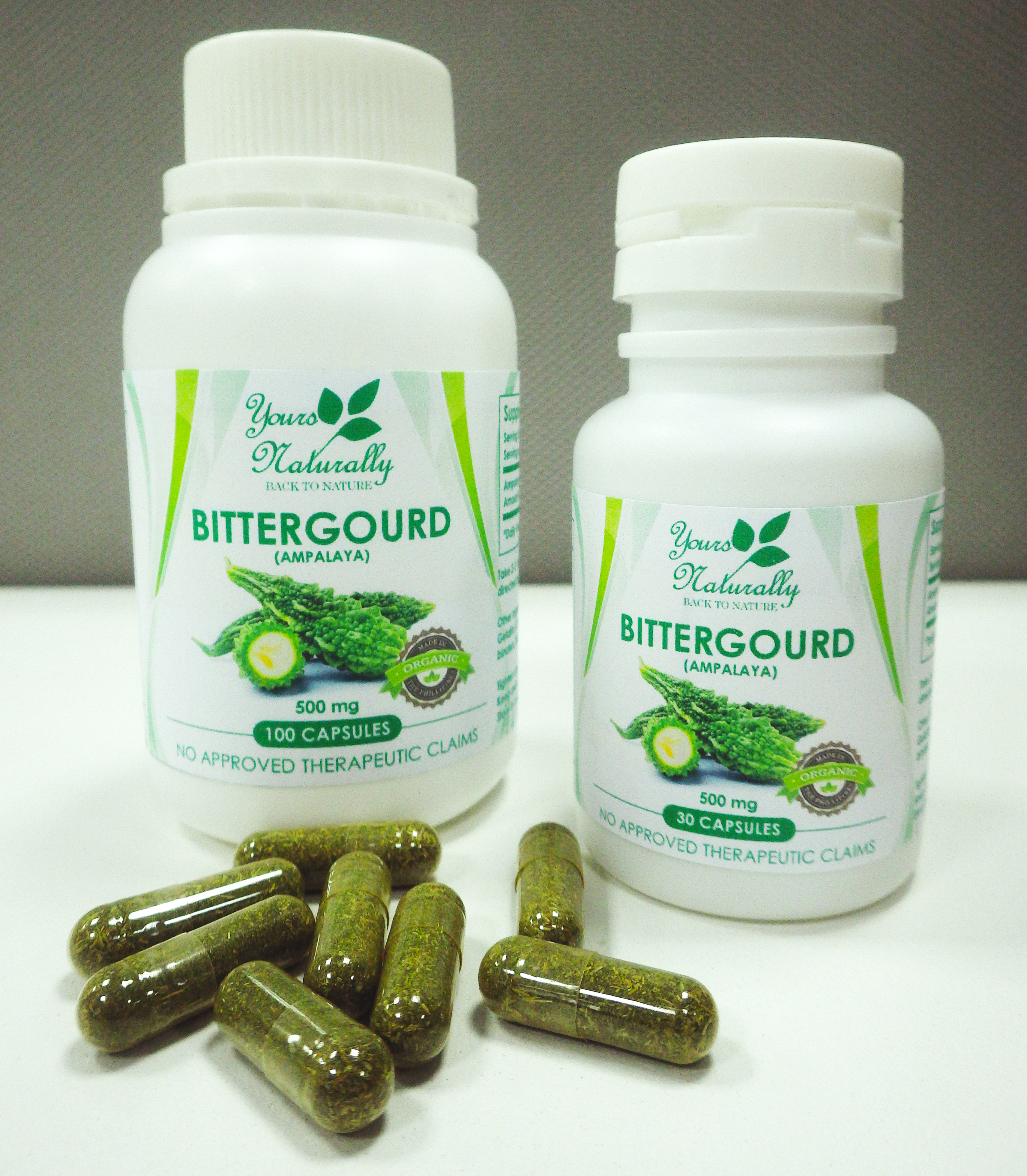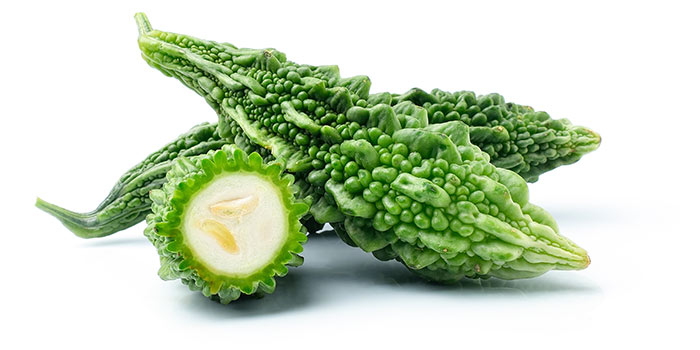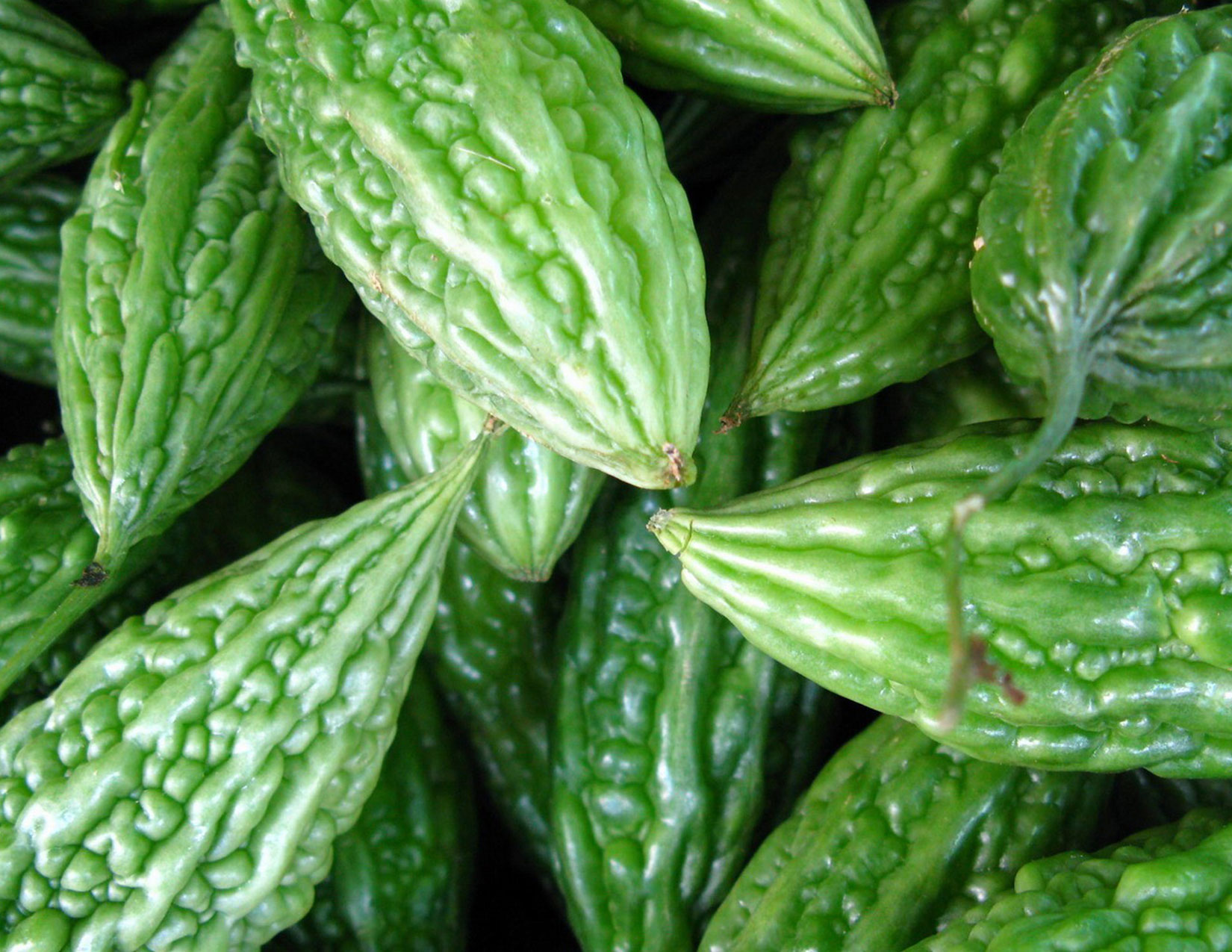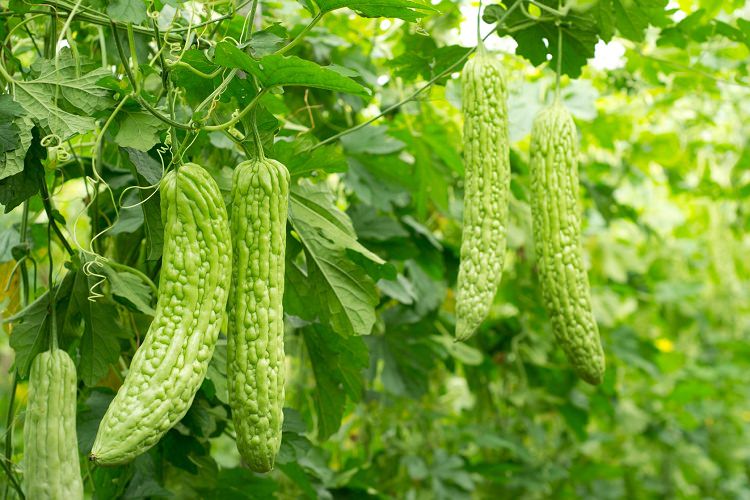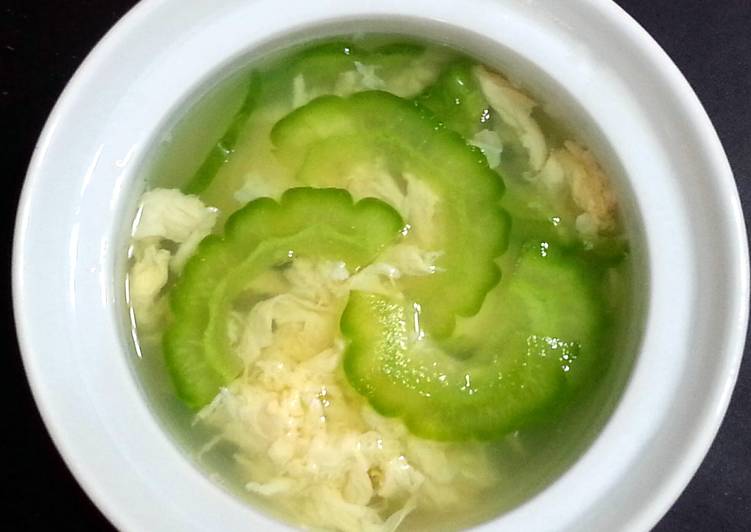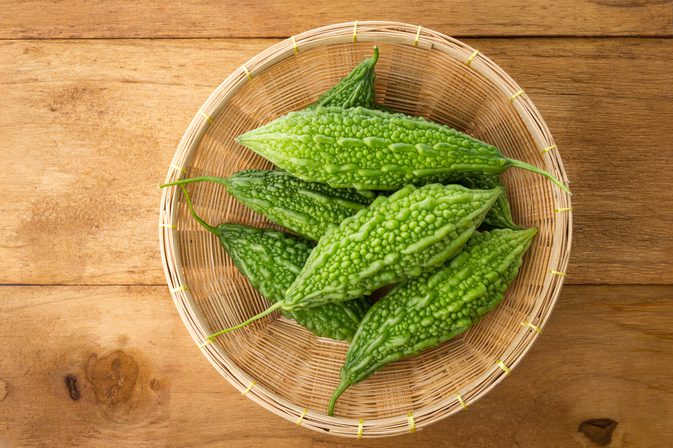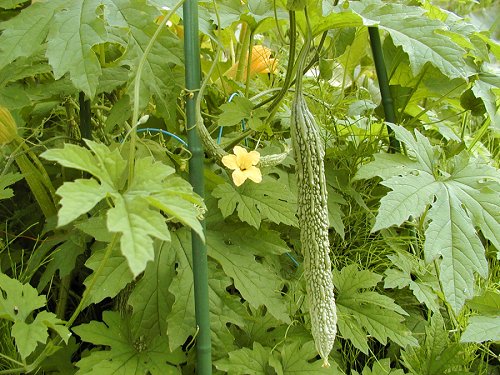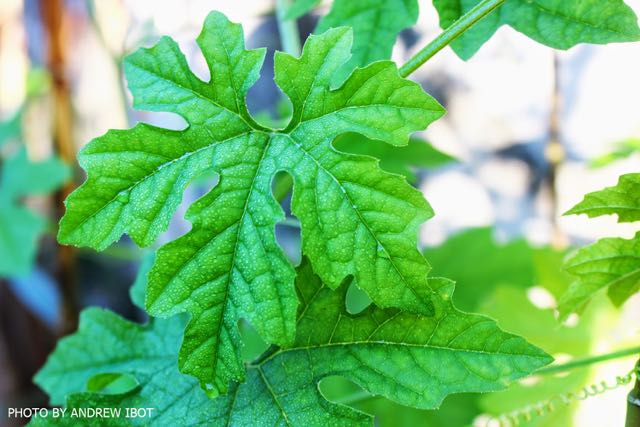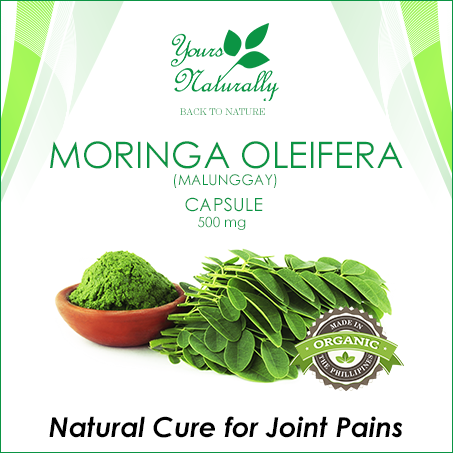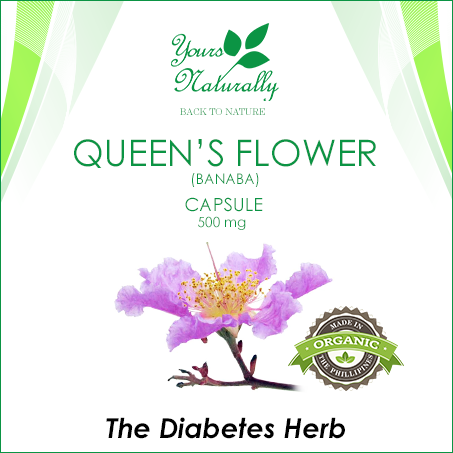Description
As the name implies, this vegetable is a melon that is bitter. There are two varieties of this vegetable: One grows to about 20 cm long, is oblong and pale green in color. The other is the smaller variety, less than 10 cm long, oval and has a darker green color. Both varieties have seeds that are white when unripe and that turn red when they are ripe. The vegetable-fruit turn reddish-orange when ripe and becomes even more bitter. The bittergourd thrives in hot and humid climates of Asian countries and South America. Westerners may not be so used to bittergourds, so may find them more difficult to consume.
Bittergourds are very low in calories but dense with precious nutrients. It is an excellent source of vitamins B1, B2, and B3, C, magnesium, folate, zinc, phosphorus, manganese, and has high dietary fiber. It is rich in iron, contains twice the beta-carotene of broccoli, twice the calcium of spinach, and twice the potassium of a banana. The bitter melon contains a unique phyto-constituent that has been confirmed to have a hypoglycemic effect called ‘charantin’. There is also another insulin-like compound known as ‘polypeptide P’, which has been suggested as insulin replacement in some diabetic patients.
1. Blood disorders
Few other fruits or vegetables offer medicinal properties for these ailments like the bittergourd does. The bittergourd is highly beneficial for treating blood disorders like blood boils and itching due to toxemia. Take 2 capsules daily on an empty stomach for aperiod of four to six months and see improvement in your condition.
2. Cholera
In the early stages of cholera, take two capsules daily and drink with diluted freshly-squeezed lemon juice till you get well.
3. Diabetes mellitus
The bittergourd contains a hypoglycemic compound (a plant insulin) that is highly beneficial in lowering sugar levels in blood and urine. It has been shown to significantly improve glucose tolerance without increasing blood insulin levels.
4. Energy
Regular consumption of bittergourds has been proven to improve energy and stamina level. Even sleeping patterns have been shown to be improved or stabilized.
5. Eye problems
The high beta-carotene and other properties in a bittergourd make it one of the finest vegetable-fruits that help alleviate eye problems and improving eyesight.
6. Gout
The bittergourd aids in cleansing your liver. It helps clean up toxic blood, improves blood circulation and relieves gout pain.
7. Hangover
Bittergourds may be beneficial in the treatment of a hangover from alcohol intoxication. It also helps cleanse, repair and nourish liver problems due to prolonged alcohol consumption.
8. Immune booster
The bittergourd can also help to build your immune system and increase your body’s resistance against infection.
9. Piles
Mix three teaspoonfuls of juice from bitter melon leaves with a glassful of buttermilk. Take this every morning on an empty stomach for about a month and see an improvement to your condition. To hasten the healing, use the paste of the roots of bitter melon plant and apply over the piles. Otherwise, you may take 3 capsules daily on an empty stomach until you have recovered.
10. Psoriasis
Regular consumption of this gourd has also been known to improve psoriasis cases and other fungal infections like ringworm infestation and Athlete’s Foot.
11. Respiratory disorders
For people with asthma, bronchitis or pharyngitis, take at least 2 capsules daily with a glass of glass water mixed with honey.
12. Toxemia
The bittergourd contains beneficial properties that cleanse the blood of toxins. Take 2 at least 2 capsules daily on an empty stomach. You may choose to increase the dosage and spread consumption throughout the day. Also, it is helpful in ridding jaundice for the same reasons.


